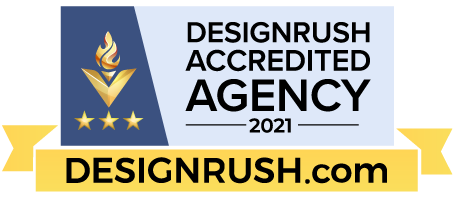Hospital Management Software: Operations & Patient Care. In today’s rapidly evolving healthcare industry, hospitals and healthcare facilities are constantly looking for ways to improve their operations and provide better patient care. One of the most effective solutions is the implementation of a hospital management software. This powerful tool streamlines various administrative and clinical processes, enhances communication and collaboration, and ultimately improves the overall efficiency of healthcare organizations. In this article, we will explore the key features, pricing models, and the need for hospital management software.
Key Features of Hospital Management Software
Hospital management software offers a wide range of features that cater to the diverse needs of healthcare organizations. Let’s take a look at some of the key features:
1. Patient Management
A hospital management software provides a comprehensive patient management system that allows healthcare professionals to efficiently handle patient records, appointments, and medical history. It enables easy access to patient information, including demographics, medical reports, prescriptions, and billing details. This feature ensures that healthcare providers have all the necessary information at their fingertips, leading to better decision-making and improved patient care.
2. Appointment Scheduling
Efficient appointment scheduling is crucial for hospitals and clinics to effectively manage patient flow and reduce waiting times. Hospital management software offers a user-friendly interface that allows staff to schedule appointments, view availability, and send automated reminders to patients. This not only improves the patient experience but also optimizes the utilization of healthcare resources.
3. Electronic Medical Records (EMR)
Electronic Medical Records (EMR) are digital versions of a patient’s medical history, including diagnoses, treatment plans, medications, and test results. Hospital management software enables healthcare providers to create, update, and access EMRs securely. This eliminates the need for paper-based records, reduces the risk of errors, and facilitates seamless information sharing between different departments within the healthcare organization.
4. Billing and Financial Management
A robust hospital management software includes billing and financial management features that automate the billing process, generate accurate invoices, and track payments. It integrates with insurance providers’ systems to streamline the claims process and ensures timely reimbursement. Additionally, it offers financial reporting capabilities that help healthcare organizations monitor their revenue, expenses, and profitability.
5. Inventory Management
Managing inventory efficiently is crucial for hospitals to ensure the availability of essential medical supplies and equipment. Hospital management software provides real-time inventory tracking, automates reordering processes, and generates alerts for low stock levels. This feature helps healthcare organizations optimize their inventory levels, reduce wastage, and avoid stockouts.
6. Laboratory and Pharmacy Management
Hospital management software includes modules for laboratory and pharmacy management, which streamline the respective operations. It facilitates the efficient tracking of laboratory tests, results, and sample management. For pharmacies, it helps with inventory management, prescription tracking, and drug interaction checks. These features enhance the overall workflow and ensure accurate and timely delivery of services.
Pricing Models for Hospital Management Software
The cost of hospital management software can vary depending on various factors such as the size of the healthcare organization, the number of users, and the specific features required. Here are some common pricing models:
1. Perpetual License
Under the perpetual license model, the healthcare organization purchases the software outright and pays a one-time fee. They own the software and can use it indefinitely. However, they may need to pay additional fees for maintenance, upgrades, and support.
2. Subscription-based
Many hospital management software providers offer subscription-based pricing models. Healthcare organizations pay a recurring fee, typically on a monthly or annual basis, to access and use the software. This pricing model often includes ongoing support, updates, and maintenance.
3. Cloud-based
Cloud-based hospital management software is hosted on remote servers, and healthcare organizations access it through the internet. This model eliminates the need for on-premises infrastructure and reduces upfront costs. Cloud-based software is usually priced based on the number of users or a tiered pricing structure.
4. Customized Pricing
For large healthcare organizations with specific requirements, software providers may offer customized pricing models. The cost is tailored to the organization’s needs, and additional features or modules may be added at an extra cost.
The Need for Hospital Management Software
The implementation of hospital management software addresses several challenges faced by healthcare organizations. Let’s explore the key reasons why hospitals need this software:
1. Streamlined Workflow
Hospital management software automates various administrative and clinical processes, eliminating the need for manual paperwork and reducing the chances of errors. It streamlines workflow across different departments, enhances communication and collaboration, and ensures smooth operations.
2. Improved Patient Care
By providing healthcare professionals with instant access to patient information, hospital management software enables better decision-making and improved patient care. It ensures that medical records are accurate and up-to-date, facilitates timely diagnosis and treatment, and enhances overall patient satisfaction.
3. Enhanced Efficiency and Productivity
Hospital management software optimizes resource utilization, reduces waiting times, and eliminates redundant tasks. It enables healthcare providers to focus more on patient care and spend less time on administrative tasks. This leads to increased efficiency and productivity within the healthcare organization.
4. Cost Savings
By automating various processes and reducing manual errors, hospital management software helps healthcare organizations save costs. It eliminates the need for paper-based records, reduces administrative overheads, and optimizes inventory management, resulting in significant cost savings in the long run.
5. Regulatory Compliance
Hospitals and healthcare facilities are subject to various regulatory requirements and compliance standards. Hospital management software helps organizations meet these requirements by ensuring accurate documentation, data security, and privacy. It also assists in generating reports and audits, simplifying the compliance process.
6. Data Analytics and Reporting
Hospital management software provides robust data analytics and reporting capabilities. It allows healthcare organizations to analyze key performance indicators, track trends, and make data-driven decisions. This valuable insight enables continuous improvement and strategic planning.
Conclusion
Hospital management software is a powerful tool that offers a wide range of features to streamline operations, improve patient care, and enhance overall efficiency. Its benefits include streamlined workflow, improved patient care, enhanced efficiency and productivity, cost savings, regulatory compliance, and data analytics capabilities.
When considering the implementation of hospital management software, healthcare organizations should carefully evaluate their specific needs, choose the right pricing model, and select a reliable software provider. By leveraging the capabilities of hospital management software, healthcare organizations can stay ahead in the ever-evolving healthcare landscape and provide better care to their patients.





